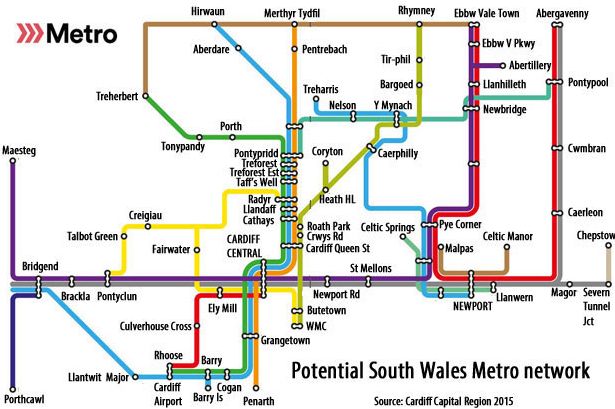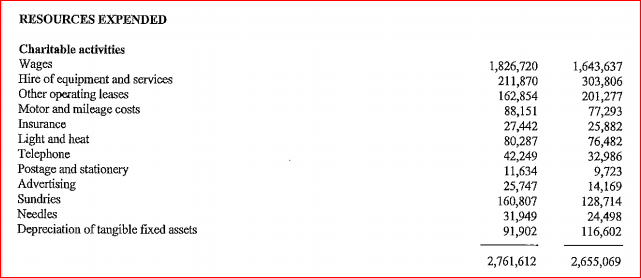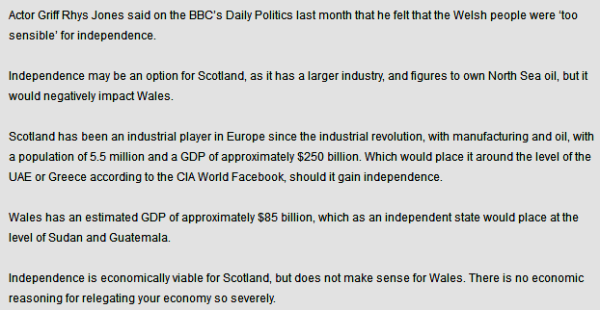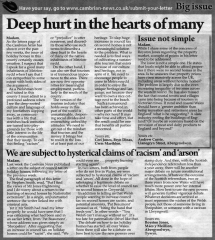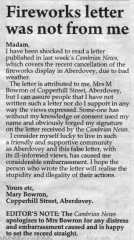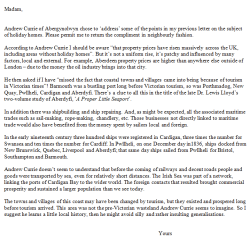TURF WARS
When the SNP began rising to prominence in Scottish politics a very strange thing happened – Labour and Tories realised they quite liked each other really, to the extent of forming coalition administrations on some local authorities just to keep the SNP (majority party) out of power. It’s still happening.
Following the council elections earlier this month Labour in Scotland got itself into a bit of a tizzy due to its councillors in Aberdeen agreeing to go into coalition with the Tories . . . and then being suspended by the party. Because it doesn’t look good for Labour to be slagging off Mrs May and her gang on one level while jumping into bed with them in Scotland’s third city.
It reminds us that the ‘fight’ between Conservatives and Labour is often a very contrived affair, especially when constitutional issues are introduced. Tories and Labour stood shoulder to shoulder in the 2014 independence referendum and told the same lies. Labour paid the price for that in Scotland with certain sections of the electorate deserting the party, and Labour is now losing support from a different element which realises that if they wish to maintain the Union then they should put aside all other differences to back the Conservative and Unionist Party.
I’ve headed this section ‘Turf Wars’ because in some respects Labour and Tories can be viewed as two gangs fighting over a turf (Britain) in order to protect their rackets: riding the gravy train, promoting and aggrandising themselves and their friends, and of course reaping the rewards in peerages and consultancies/directorships on leaving office, if not before. The introduction of the threat from a third party, especially one offering radical change, makes them realise that they have more in common than they had previously wanted to admit.
On a practical level, it results in people belonging to either of these parties happier to see the other party win than have the outsider, the threat, succeed. Which gives us the reason for Labour’s current tribulations in Aberdeen. And many in Labour are quite open about preferring to see the Tories win, as this snippet from Labour Uncut reminds us.
But how far might this cynical co-operation between Labour and the Tories go? Could it happen in Wales?
Going back to the recent council elections, there might have been some jiggery-pokery in Neath Port Talbot. The Labour Party there was going through a difficult time, with many de-selections resulting in former Labour councillors standing as Independents, and to add to Labour’s woes there was a stronger than usual threat from Plaid Cymru.
All of which might explain the arrival of the cavalry in the form of unknown Conservative candidates, who seemed to do little or no canvassing, and most of whom didn’t bother to turn up at the count. What they did achieve in a number of wards was to split the anti-Labour vote and ensure a Labour victory. Some tell me there were paper candidates like these in other areas.
Then there was the Llangennech school dispute where people close to the Labour Party were more than happy to link up with UKIP in order to attack the Welsh language – ‘education’ and ‘choice’ being mere fig leaves. You might argue this was not strictly political, but Labour used the dispute, now being supported by UKIP, to attack Plaid Cymru. So we see a similar pattern at work.

And going back to my previous post, the people behind that obnoxious leaflet had a clear objective, which was to cause maximum damage to Plaid Cymru and hopefully loosen Plaid’s control on Gwynedd council. I mentioned that the leaflets had been seen in Blaenau Ffestiniog (in the Co-op store, to be exact), perhaps I should also have told you that in the Diffwys and Maenofferen ward of the town the Plaid Cymru candidate lost by just 3 votes.
With a margin that small it’s reasonable to assume that the leaflet was decisive.
♦
MEDIA
One reason that Tories and Labour are allowed to get away with such practices is of course because, by and large, the UK media is on the same wavelength, even otherwise liberal outlets tend to line up with them when ‘ugly nationalism’ is introduced to the mix.
A case in point would be the BBC, which still wields incredible influence due to so many people relying on it for their news. People trust the BBC, but that trust is often abused. Because I am in no doubt that the BBC has done a deal with the Conservative Party to follow the required line on most issues in return for keeping the licence fee that guarantees its survival. Though on Scottish independence, for example, the Beeb might not need to be leaned on.
One recent example of the Corporation’s Unionist credentials was the televised Scottish party leaders debate on Sunday when, to believe most of the media, SNP leader Nicola Sturgeon was floored by a nurse who claimed she had to use food banks. Here’s a more balanced view of that new low which exposed the BBC for the state propaganda agency it is, and always has been.

And the BBC also proves what I said earlier about liberal outlets. For within the Corporation certain programmes – often with small, left of centre audiences – are allowed to stray from the official line in the hope of maintaining the image of impartiality. Newsnight, for example, supported Remain, Clinton, anybody but Le Pen, etc, yet when it comes to discussing the SNP or Scotland Newsnight could have Nigel Farage as its producer.
Here in Wales, supplementing the BBC’s output we have Trinity Mirror which, in addition to publishing the Daily Mirror, the Sunday Mirror (and the Daily Record in Scotland) also owns in Wales: Western Mail, Daily Post, Wales on Sunday, the Evening Post, the Echo, Llanelli Star, Caernarfon Herald, Neath Guardian, Flintshire Chronicle, Cynon Valley Leader, Glamorgan Gazette, Gwent Gazette, Merthyr Express, Pontypridd and Llantrisant Observer, Rhondda Leader and the Rhymney Valley Express.
With all the previously separate websites now merged into WalesOnline, and controlled from Cardiff.
Trinity Mirror supports the Labour party. And with the BBC supporting any party that can maintain the Union the combination of Trinity Mirror and the BBC goes quite some way to explaining why a party as utterly useless as ‘Welsh’ Labour can hang on to power.
But Trinity Mirror’s loyalty to the Labour Party can take many forms, much of it distasteful. Further details on one such case were brought to my attention just a few days ago.
♦
JENNY LEE CLARKE
You will recall the case of the Swansea East Labour MP Carolyn Harris’s attack on a co-worker in the constituency office of Harris’s predecessor Siân James. It made the London dailies. No charges resulted only because the complaint was made beyond the six-month limit for charges of common assault.
As might be expected, when Harris became MP for Swansea East in May 2015 things got very difficult for the woman she had assaulted, Jenny Lee Clarke, who was still working in the constituency office. It was no surprise when Harris – once ‘cleared’ – took her revenge by accusing Clarke of theft. Equally unsurprising was the fact that WalesOnline gleefully reported the baseless accusation.
Ms Clarke lost her job and was put through the mill. Here’s her timetable of events:
15.01.16 – Raised a grievance
27.01.16 – 8 hours giving a statement about the verbal, emotional and physical abuse
28.01.16 – Sacked
26.04.16 – Discovered from broadsheets I was being investigated
24.06.16 – Arrested – bail
19.09.16 – Re-bailed
07.11.16 – Re-bailed
17.02.17 – Still on bail whilst case went to CPS for a charging decision
17.05.17 – No action taken and released with no bail conditions because process had not been adhered too
When Ms Clarke attended Swansea Central police station on May 17th she was told that she was being released with no charge . . . but was also told, “You may in future be asked to attend voluntarily to be re-interviewed”. Though an apology was made “for the length of time this has taken”.
It has been suggested to me that this nightmare only ended when it did because of the ‘no extension of bail without fresh evidence’ provision in the Policing and Crime Act 2017, brought in due to the constant re-bailing in the Cliff Richard fiasco.
As we’ve seen, the Labour-supporting Trinity Mirror Group was quick to exonerate the Labour MP and equally quick to put the boot into her victim. Though, fair play, Richard Youle, senior news reporter for the Evening Post did promise to report the outcome of the investigation, as the e-mail reproduced below tells us.
The problem is that despite being told of the outcome, and reminded of his promise, Mr Youle and Trinity Mirror seem to have lost interest in the case. I wonder why?
Labour supporters reading this – and I do get them! – will be shouting, ‘Trinity Mirror’s reluctance to report the Jenny Lee Clarke case has got nothing to do with saving Labour embarrassment, Jac, cos Carolyn Harris is safe in Swansea East’. And indeed she is, bless her . . . but the Post covers the Bay and Carmarthenshire, so what about another Swansea seat, Gower, where Labour is hoping to overcome Byron Davies’s majority of just 27? And then there’s Llanelli, where you wouldn’t bet your house on Nia Griffith being returned.
This is a case that again exposes the links between the Labour Party and Trinity Mirror, and how they are prepared to combine in destroying anyone who threatens them. For Jenny Lee Clarke is now heavily in debt, she has lost her car, her telephone has been disconnected, and – unlike the stooge-nurse in Edinburgh – Jenny really is using food banks.
And what of South Wales Police? Their role in this does their reputation no favours. I hope there’s no connection between their treatment of an innocent woman and the fact that the PCC for South Wales Police is the odious Alun Michael, former Labour MP for Cardiff South and Penarth who, once elected, stuffed his office with Labour apparatchiks in the time-honoured way.
Having said that the Evening Post and WalesOnline couldn’t find space to tell us that Jenny Lee Clarke was not going to be prosecuted, Trinity Mirror still found space to insult our intelligence with a truly ludicrous story about how Harris had been affected by the Manchester bombing.

Of course, she was nowhere near Manchester on Monday night, but she had been in Westminster for that attack in March – but she was never in any danger there either. While we expect politicians to exploit tragedies for their own advantage this is still one of the more contrived and disgusting examples I’ve come across.
But it’s what happens when you have a country where the dominant political party enjoys an unhealthy relationship with the company controlling most of the indigenous print media.
Anyone considering a ‘progressive alliance’ with these bastards needs a good talking to, with the kind of implement we shall encounter in the next section.
There is nothing ‘progressive’about the Labour Party.
♦
STOP PRESS!
I am informed by the legendary Ian Bone, founder of Class War, that on Sunday July 16th there is to be a ‘Dress Like Leon Atkin Day’ in Swansea. The message went on, “There will be a perambulation from Jimmy Wilde’s to St Paul’s Crypt followed by speechifying and singing”. For those now staring at the screen in bewilderment, let me explain.
Leon Atkin was a man of the cloth who used to give shelter to vagrants in the crypt of his church (now a curry house), which stood on the junction of St Helen’s Road and St Helen’s Avenue, opposite the legendary Joe’s ice cream parlour. The Jimmy Wilde referred to was not that Jimmy Wilde, but the old heavyweight boxer, who’d briefly been Welsh champion until losing his title to Tommy Farr. And he had even known the immortal Marciano who, as everyone knows, started his fight career in Swansea.
By the time I knew Jimmy he looked what he was, a beaten-up old heavyweight straight out of central casting, but you knew not to mess with him. He ran a drinking club not far from High Street Station. To describe Jimmy’s place as ‘rough’ would be an understatement on a par with saying Leo Messi’s a pretty good footballer.

You must remember that back then the pubs closed in the afternoon so, unless you knew a friendly landlord – or landlady! – if you wanted a drink you had to go to a club. Don’t get me wrong, there were some very tidy clubs, but these tended to be more discriminating than Jimmy about who they served. They expected you to be able to stand upright without swaying, or it would be some other irritating qualification.
Even so, you couldn’t always walk straight into Jimmy’s, there was often a certain film noir element to gaining admittance. For example, you’d knock on the door and a voice from within would ask, ‘Are you a member?’ You’d answer ‘No’, and the voice would come back, ‘Oh, never mind’, and the door would open. It was a strange ritual that served no real purpose.
The link between Jimmy Wilde’s and St Paul’s was of course that many of Jimmy’s customers made a regular perambulation to the Crypt. It might be worth adding that Leon Atkin was a drinker himself, in fact, he’d sunk a few pints with Dylan.
Back in the ’70s Ian and his crew did fantastic work with their underground magazine Alarm, exposing the corruption on Swansea council. Labour Council leader Gerald Murphy eventually got sent down, and then his Ratepayer successor Sid Jenkins got done for accepting ‘favours’. As we used to say – ‘Swansea’s got the best councillors money can buy’.
I recall one night in 1980 drinking with Phil Henry in the Queens on Oxford Street (run then by the Necrews family). Ian Bone was there selling ‘Paul Ringer is Innocent’ badges. The story as I remember it was . . . he’d pissed off some local heavies who’d bent an iron bar over his head, so with the compensation money he bought himself a badge-making machine!
Happy days with unbelievable characters. When did people become so boring?
♦ end ♦











